Bombay’s tryst with destiny
The Royal Indian Naval uprising of 1946 in Bombay was a catalyst that hastened the countdown to India’s Independence on 15 August, 1947.
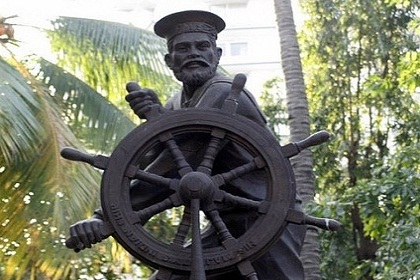 Courtesy: Jahnvee/Wordpress
Courtesy: Jahnvee/Wordpress
The Royal Indian Naval uprising of 1946 in Bombay was a catalyst that hastened the countdown to India’s Independence on 15 August, 1947.
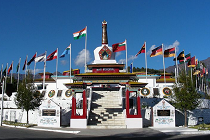 Courtesy: Rajkumar1220/Wikimedia Commons
Courtesy: Rajkumar1220/Wikimedia Commons
The classified Henderson Brooks report on the India-China War is still relevant for India, considering China’s renewed aggression at the Line of Actual Control. The findings highlight the need to re-think our muddled China policy and coordination among the political, bureaucratic and military establishments
 Courtesy: Dipayan Bhattacharjee/Flickr
Courtesy: Dipayan Bhattacharjee/Flickr
The reforms of the early 1990s did not bring economic freedom to a majority of the population. That explains a large proportion of the economic and social ills that affect India today. Why is economic life in India of the ‘Taliban type’? Why is illiberal thought still our guiding principle?
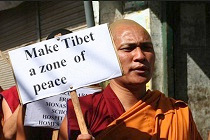 Courtesy: Wen-Yan King/Flickr
Courtesy: Wen-Yan King/Flickr
India should recognise the importance of Tibetans for India’s security. Security in the Himalayan borderlands does not come only from only a military build-up in which India cannot surpass China, or new border infrastructure, but also from the pro-India sentiments of its inhabitants.
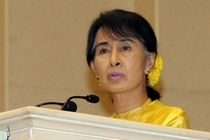 Courtesy:
Courtesy:
In the case of Myanmar and Aung San Suu Kyi, the battle for democracy is far from over. Gateway House’s Amit Baruah blogs about Suu Kyi’s recent visit to India and the Indian government's possible role in ensuring that a lasting democracy is inaugurated in Myanmar.
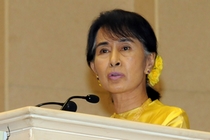 Courtesy: Ministry of External Affairs, India
Courtesy: Ministry of External Affairs, India
In the case of Myanmar and Aung San Suu Kyi, the battle for democracy is far from over. Can India use its leverage with the Myanmar government to ensure that a lasting democracy is inaugurated in that country?
The Diplomat republished Gateway House's Ambassador Neelam Deo's article on the factors that impede the smooth functioning of democracy, in India and abroad. She argues that it is imperative to find ways to confront the shortcomings that have crept into our cherished democracies.
Dawn republished Gateway House's Ambassador Neelam Deo's article on the factors that impede the smooth functioning of democracy, in India and abroad. She argues that it is imperative to find ways to confront the shortcomings that have crept into our cherished democracies.
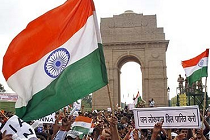 Courtesy: Mission Against Corruption/Wikimedia Commons
Courtesy: Mission Against Corruption/Wikimedia Commons
The promise of an egalitarian democratic system in India and abroad, has been tarnished by the entrenchment of dynastic leadership and by an inordinate concentration of power and wealth in the hands of a few. It is imperative to find ways to confront the shortcomings that have crept into our cherished democracies.
 Courtesy:
Courtesy:
As Pakistan's military dictators are proving to be more prosperous than its “democratically” elected leaders over the past two decades, Harini Calamur explains the history behind the country's capitalist foundation.